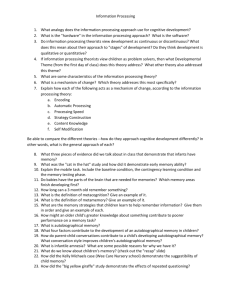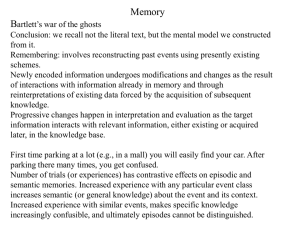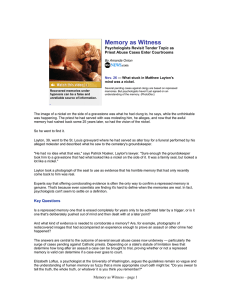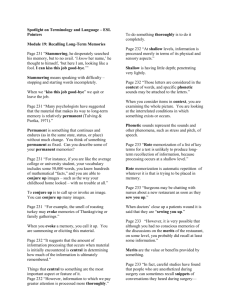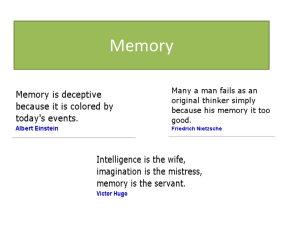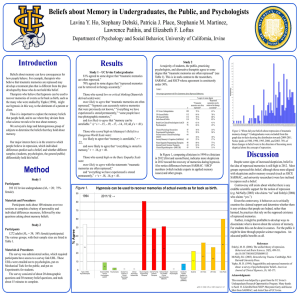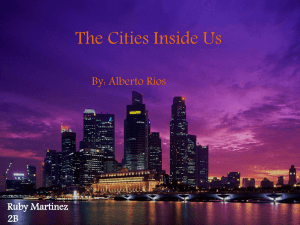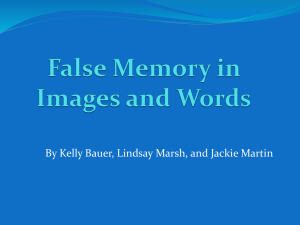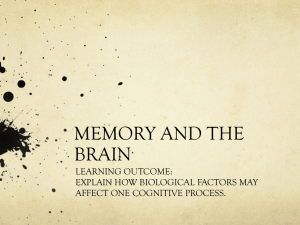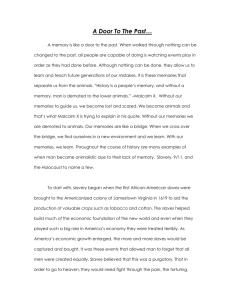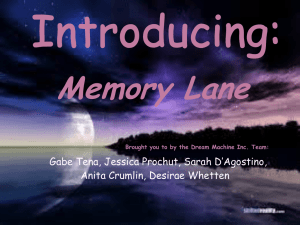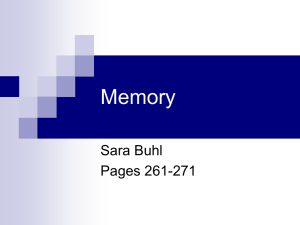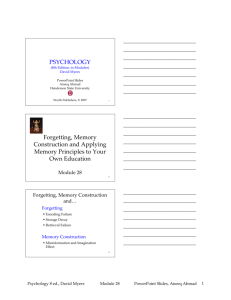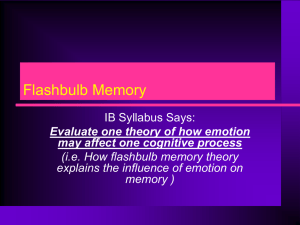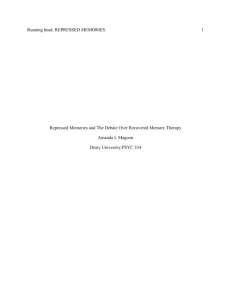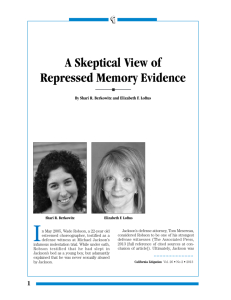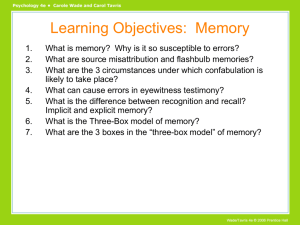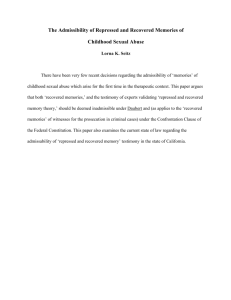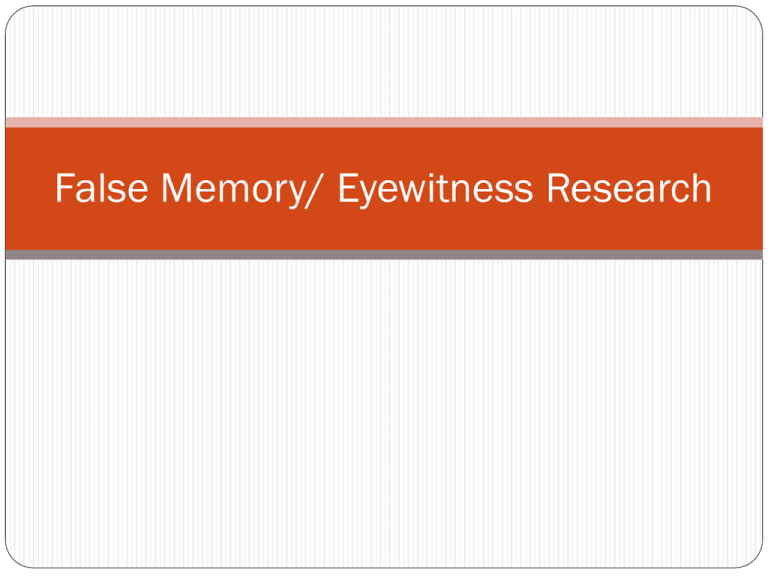
False Memory/ Eyewitness Research
Flashbulb Memories
Flashbulb Memories – Unusually vivid and detailed recollections
of momentous events.
Examples
What does actual research suggest about these recollections?
Repressed Memories
Very controversial issue, sensationalized by media
Numerous reports involving return of long lost memories of
sexual abuse and other traumas during childhood
Example of an extreme case
Support for Repressed Memories
Many psychologists accept these memories at face value.
Believe that sexual abuse during childhood is more widespread than
people believe
Natural for individuals to repress it
Skepticism for Repressed Memories
Skeptics believe that suggestible people wrestling with emotional
issues can be convinced by persuasive therapists that their problems
are result of repressed sexual abuse.
Therapists operating under questionable assumptions
How do they attempt to get at these memories?
There have been several discredited cases of repressed memories of
sexual abuse
Example
Deese-Roediger Mcdermott (DRM) Paradigm
DRM Paradigm Demonstration
What was the importance of this study?
Misinformation Effect
Misinformation Effect – Occurs when participants’ recall of an
event they witnessed is altered by introducing misleading postevent
information
Famous Loftus “stop sign” study
Participants viewed automobile accident slides
In one slide, the car was seen stopped at yield sign
Later in a questionnaire, a question asked participants “ Did the car
stop at the stop sign?”
What did results show?
Importance to legal system
Change Blindness
Change blindness-This phenomenon occurs when individuals fail to
notice large changes to a visual scene.
Sample Clip
Simon and Levins Door study
An actor was surreptitiously replaced in the middle of a conversation
with an unsuspecting individual.
Sample Clip
Findings
Issues for legal system
Own Race Bias
Own Race Bias- Tendency for individuals of one race to have difficulty
identifying members of a race other than their own.
Relating to Eyewitnesses, eyewitnesses are more likely to misidentify
someone of another race as the perpetrator of a crime.
Typical Study:
Participants of different races are exposed to simulated crime scenarios
whereby the perpetrator is either of the same race or different race
than they are. Following presentation of the simulated act, observers
will be asked to choose the criminal they saw from a lineup.
-Findings
Possible Explanations/Implications to legal world
Police Interrogation Interview Issues
McMartin Preschool Case
How did Police get children to say these things?
Suggestive Questions
People, especially children, are suggestible and can be easily influenced
by questions aiming to get something out of them
Positive and Negative Consequences
People may be more likely to give false statements, depending on
consequences.
Other issues relating to eyewitnesses
Weapon Focus Effect- Eyewitnesses are found to be less accurate
regarding details of a crime if a weapon is involved
Why might this be so?
Source Monitoring Errors – Confusion over the source of
memories
Example


